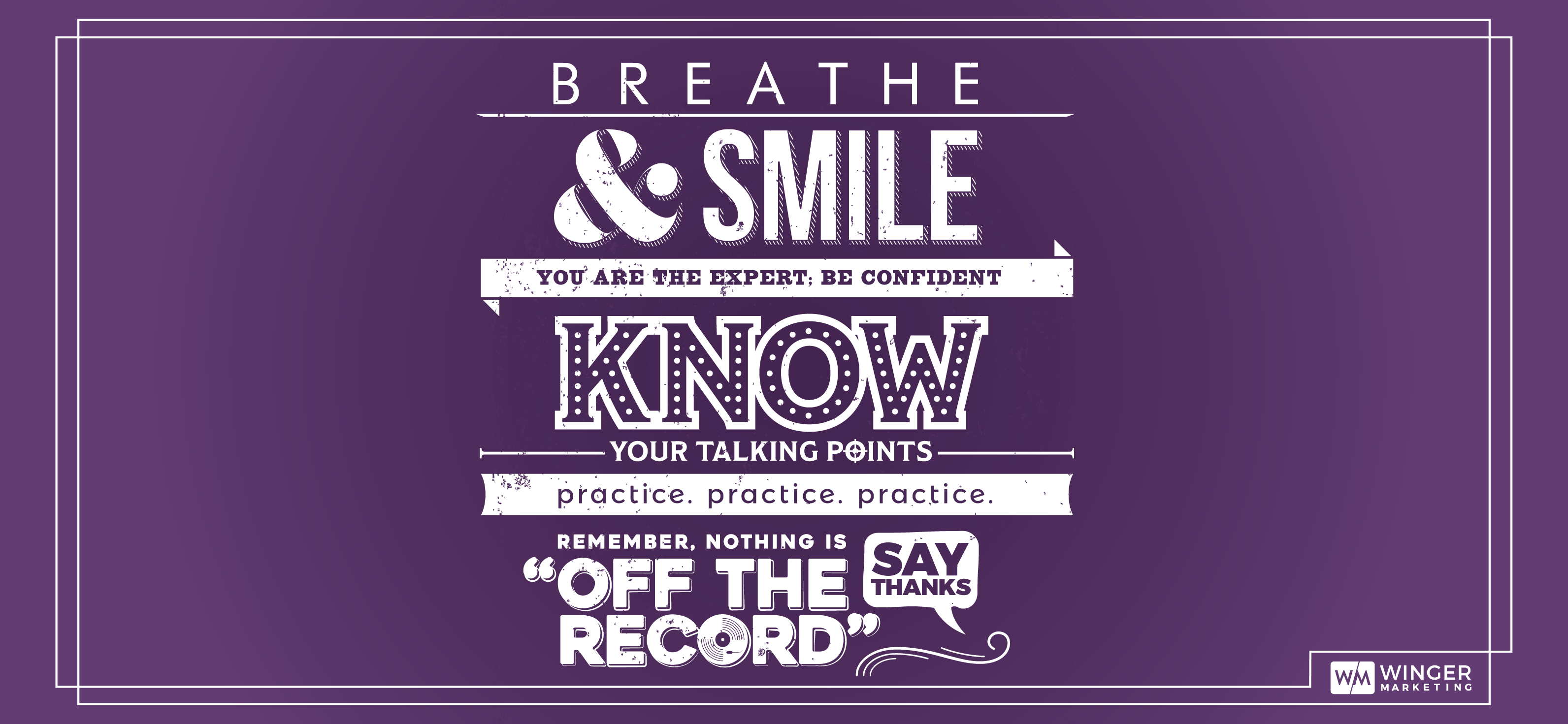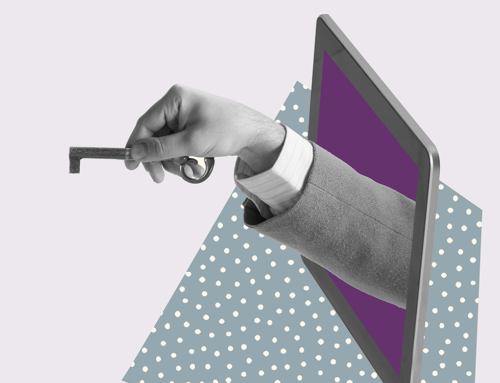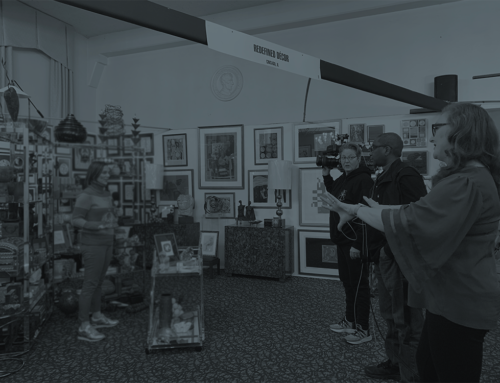Being on television, radio or live on the Internet can be very nerve-wracking, especially if it’s your first time presenting in one of these mediums. Speaking or presenting, even when there isn’t an audience that you can see, is a skill that does not come naturally for most people. In fact, there is a clinical name for the fear of public speaking, Glossophobia. Symptoms include dry mouth, weak voice, sweating, body shaking, turning red and accelerated heartbeat. Sound familiar? There are a few very simple ways to combat this fear that nearly 75% of the population experience. Good preparation and practice are the most common ways to quell your public speaking fears. Other remedies such as hypnosis, meditation and even anti-anxiety or blood pressure medications can be considered for severe cases.
Since our specialty is in communicating and not social work or medicine, we opt for the most obvious ways to help clients have successful experiences presenting their stories through the media. Preparation and practice equals confidence. Starting with the confidence and mindset that you are capable of anything will show-up in your interview and help position you as an expert. Even if you have had your fair share of interviews and think that you have this nailed, use these simple tips to stay at the top of your game and put Glossophobia to rest for good!
Practice makes perfect
Practice until you can recite all your key points backwards. Just kidding. However, you should know everything you want to say inside out. Be prepared to be interrupted and asked questions. Don’t memorize what you want to say as a script, rather you should talk using a natural, conversational tone. It’s better to be overprepared than unprepared, and it’s easy to get nervous and lose your train of thought. Bringing notes with you will help you stay on track and can be used during radio, podcast or Internet broadcasts. Using notes on television is a no-no so the best strategy is to listen and engage with the reporter. You are on live television, there are no second chances.
A few days leading up to your big day, practice at home in front of a mirror or record yourself on your phone to watch back later and evaluate yourself. Practice in front of your partner, spouse, friend or colleague. Let them stop and ask you questions. You have to be prepared for anything thrown your way since you will not know in advance what questions the reporter might ask you.
Preparation
There are proper measures that should be taken before you walk in for your interview in order for it to run smoothly. Practice leading up to your big day, get a goodnight sleep, wake up early, eat breakfast, shower, dress in a simple and professional outfit that makes you feel good. Arrive at the studio or interview location early and camera-ready. This will help counteract anxiety and support a feeling of confidence. Keep in mind, it is important to not wear white because it can cast light onto your face and confuse the white-balance on the cameras. Solid colors, and stylish accessories show nicely on television. Avoid wearing wild patterns and chunky jewelry that makes clinking noises. These can be distracting and as they may interfere with the microphone.
Be confident
Confidence is key. Walking into an interview being prepared and feeling confident goes a long way. Strong body language and direct eye contact with the reporter during your interview will support not only your confidence, but also the confidence the reporter and the audience have in your answers. To reiterate, make sure to practice so you are very familiar with your key points and plan multiple answers to various potential questions ahead of time. There’s a very good chance you may be able to supply potential questions to the reporter in advance. If this is the case, you’ll be ahead of the game and able to deliver your story from your perspective. In regards to your body language, sitting towards the front of the chair or sofa makes you look more engaged. Keep your hands in your lap and feet on the floor. Women should cross their legs at the ankle if they are wearing a skirt or dress. If you use gestures, make sure they match your words and your tone. You don’t need to make large gestures to make your point on television like you would need to on a stage. If the interview is taking place in the studio, make eye contact with the reporter the entire time, do not stare directly into the camera.
Wrapping it up
When your spotlight is coming to a close, remain calm and leave time for any questions the reporter might have for you. When the interview is over, feel free to leave any press materials with the reporter. As a follow up, it’s a nice gesture to send a personal handwritten thank you note. When they receive this, it will remind them of how well you did during the interview and will more likely to invite you back.
Keep these tips in the back of your mind during interviews. The most important thing to do is be there in the moment and enjoy every second of it. Before you know it, it will be over. Remember to record the segment at home to watch and refer back to so that you can improve and prepare for your next interview. Confidence is key. Now, you are ready to rock your next interview.
Best of luck!
More ways to deliver powerful on camera interviews.









